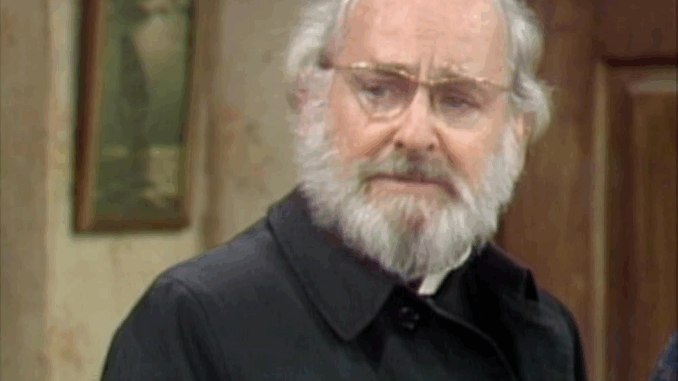
In the groundbreaking world of All in the Family, few characters were as quietly revolutionary as Edith Bunker. In the episode “Edith’s Conversion,” originally aired in 1975, the sweet, soft-spoken housewife challenges not only her husband Archie’s beliefs—but the traditional gender roles and religious expectations of the time.
What unfolds is one of the show’s most quietly radical moments, packaged in its signature blend of humor, humanity, and social reflection.
A Spiritual Shake-Up in the Bunker Home
The plot is set in motion when Edith, after attending a women’s church group, begins exploring new ideas about religion, equality, and spirituality. Inspired by a progressive female preacher, she starts to question the rigid religious structure she’s always followed.
Archie, ever the traditionalist and patriarch, is outraged. To him, religion is black and white, and a woman’s place in the church—and in the home—is to listen, not to lead. His reaction is both expected and revealing, providing a sharp contrast to Edith’s quiet spiritual awakening.
Edith Finds Her Voice
What makes “Edith’s Conversion” so powerful is the way it allows Edith, often portrayed as naive or passive, to assert herself with dignity and clarity. She doesn’t yell. She doesn’t argue. But she stands firm in her evolving beliefs, challenging Archie—not with defiance, but with conviction.
This shift is more than personal; it’s symbolic. Edith becomes a voice for countless women in the 1970s who were beginning to question long-standing roles in both religious and domestic life. Through her, the show explored how personal growth could be an act of quiet rebellion.
Relevant Then. Resonant Now.
Nearly 50 years later, “Edith’s Conversion” remains a bold piece of television. Its themes of religious autonomy, women’s empowerment, and resistance to patriarchal norms still resonate in today’s conversations about gender and faith.
In typical All in the Family fashion, the episode balances humor and heart, using a simple domestic conflict to explore complex societal issues. Edith’s journey may have started in a church basement, but its ripple effects continue through generations of viewers.